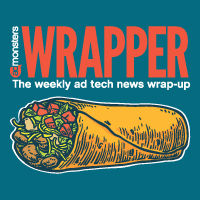Private label beverages are a lot more hip now than they were back in the day when nondescript labels reading simply “Cola” or “Orange” adorned generic-looking bottles on supermarket shelves.
And they are no longer the exclusive property of supermarkets and mass merchandisers. Stylish private label (also known as proprietary or store-brand) beverages are popping up where you’d least expect them: the perennially space-challenged convenience store.
“The opportunity for retailer brands in this channel is significant. It’s all about creating a product or a brand that’s only available in your store,” explains Edmund O’Keefe, VP Investor Relations and Corporate Development at supplier giant Cott. “That’s the whole ethos of private label.”
The c-store channel, he points out, “is more innovative in the sense that in the newer categories — such as energy drinks and flavored sparkling waters — and newer packaging formats, a lot of work has been initiated by c-stores that has migrated to other channels.”
Private label is growing in the channel, but is by no means extensive, offering up a wealth of opportunities to stores and chains who want to shake off the generic label and own a piece of that big beverage pie for themselves. “As a c-store operator, it’s extremely beneficial to your business if the customer embraces what you have on offer, notes Jeff Lenard, a spokesperson for the National Association for Convenience Stores (NACS). “And if you offer a product they can’t get anywhere else, it sells itself. If you can make customers come to your store when they could easily go elsewhere, you’ve essentially eliminated the competition.”
Cott, who currently caters to the channel mainly in Canada, is always looking at growth opportunities in the US and offers several advantages. Their cola formulas, for example, are unique to each of their customers, allowing them tailor the flavor to the regional focus of a particular retailer. “We own bottling plants, but we don’t have trucks, DSD or people calling on accounts, so we’re less capital-intensive,” O’Keefe says. “This enables us to react very quickly in terms of product development if there’s a new idea or trend.”
Retailers appear to be reacting quickly as well. Sanford, NC-based chain The Pantry now offers its own “Celeste” line of spring water and soft drinks, but has also taken advantage of the energy drink craze with Red Celeste Extreme. And the Wawa chain, based in Pennsylvania, not only gives its customers iced tea to sing about, but a huge array of other proprietary beverages attractively packaged under the auspices of its “Wawa Dairy” label. Traditional staples such as milk and fruit juice products boasting the Wawa name share the shelves with contemporary favorites such as Diet Green and Diet Peach Iced Tea and Chilled Double Mocha and French Vanilla Cappuccino.
Dallas, TX-based c-store veteran 7-Eleven has enthusiastically grabbed the proprietary beverage bull by the horns, actively co-developing products and signing exclusive distribution deals. Last year the chain, in conjunction with SAB Miller, began featuring Santiago, a Mexican beer sold only in 7-Eleven stores. This past June, they struck a deal with Richard Branson’s Virgin Cola to exclusively distribute the soft drinks (with the help of cheeky print ads) until the end of this year. Now they have launched a similar six-month venture with Brain Twist to market Fair Warning, billed as “the first-ever sensation drink.”
“It has a mouth feel that creates the sensation of an Altoid,” explains Debbie Wildrick, category manager of non-alcoholic beverages. “We worked on the concept with Brain Twist, starting with consumer focus groups — who actually chose the name Fair Warning.” Everything about the product was co-developed with the supplier, and it will be sold exclusively in 7-Eleven for six months. “It’s team merchandising at its best,” she enthuses. Targeted at teens and young adults who “enjoy a challenge,” Fair Warning seeks to capitalize on the “dare factor” (anyone who’s ever attempted to finish an entire Altoid can relate) and is housed a unique 12-ounce slimcan.
For those of us not quite brave enough to handle such a thing, Sunny Essentials is a proprietary 100% not-from-concentrate juice brand whose orange juice versions first successfully tested in Texas and Florida, and sells ahead of some major brands in 7-Eleven stores. A cranberry juice blend, loaded with Vitamin C, echinacea, and zinc hit the shelves last month, just in time for flu season.
Wildrick says the promotional philosophy is to “direct our stores to place new products on the handle, give them multiple facings and make sure they’re at eye-level when the consumer looks at the shelf.” They don’t traditionally run price promotions, but on proprietary products might run a buy one, get one free.
“I think the success of proprietary brands depends on how you position them,” she says. “Compared to grocery, we’re very limited in terms of cold single-serve space, so if you strategically position your products so that they’re higher in quality and have niche appeal, they’ll be very successful.” If the product doesn’t have background or consumer research behind it, she notes, “you don’t have much chance for success because again, you’re dealing with limited space and your consumers are buying what they know and love.”
Cott’s O’Keefe concurs. “The reality is, when someone is in a rush, and they go into a convenience store, they want something that looks good, has good quality packaging, and gives them the assurance that there’s quality there,” he says. “Generally in c-stores, people aren’t buying on price.”



